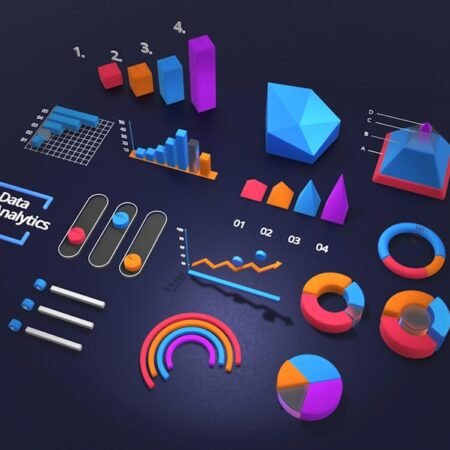In the digital era, concerns about privacy and data security have intensified. The widespread adoption of encryption to safeguard sensitive information has sparked debate about the legality of capturing and decrypting encrypted data using tools like Wireshark. While Wireshark is commonly used for network analysis and troubleshooting, the legality of capturing and decrypting encrypted data is a complex issue that demands careful consideration.
From a legal perspective, using Wireshark to capture and decrypt encrypted data raises several crucial questions. Firstly, there is the issue of consent. In many jurisdictions, intercepting or accessing electronic communications without the consent of all parties involved is illegal.
This means that capturing and decrypting encrypted data without proper authorization could violate wiretapping laws and other privacy regulations. Additionally, using Wireshark to decrypt encrypted data may also contravene laws related to unauthorized access to computer systems and data. However, there are certain circumstances in which capturing and decrypting encrypted data using Wireshark may be legal.
For instance, network administrators and security professionals may have legitimate reasons for monitoring and analyzing network traffic, such as identifying and addressing security vulnerabilities. In such cases, using Wireshark may be considered legal as long as it is done in accordance with applicable laws and regulations. Nevertheless, even in these situations, it is essential to respect individuals’ privacy rights and handle captured data in a responsible and ethical manner.
Key Takeaways
- Capturing and decrypting encrypted data using Wireshark may not be legal in all circumstances
- Understanding the legality of capturing encrypted data involves considering local laws and regulations
- Ethical considerations of decrypting encrypted data include respecting privacy and consent
- Legal implications of using Wireshark for data capture can result in severe consequences if done without authorization
- Best practices for ethical and legal use of Wireshark include obtaining proper consent and following regulatory guidelines
Understanding the legality of capturing encrypted data
The legality of capturing encrypted data using Wireshark depends on a variety of factors, including the specific laws and regulations in place in a given jurisdiction, as well as the circumstances surrounding the capture and decryption of the data. In many cases, the use of Wireshark to capture and decrypt encrypted data without proper authorization may be considered illegal, as it could violate wiretapping laws and other privacy regulations. However, there are also situations in which the use of Wireshark for these purposes may be legal, such as when it is done for legitimate network analysis and troubleshooting purposes.
In order to determine the legality of capturing encrypted data using Wireshark, it is important to consider the specific laws and regulations that apply in a given jurisdiction. For example, in the United States, the Electronic Communications Privacy Act (ECPA) prohibits the interception of electronic communications without the consent of all parties involved. Similarly, the European Union’s General Data Protection Regulation (GDPR) includes strict requirements for the processing of personal data, including restrictions on unauthorized access to encrypted information.
By understanding the legal framework that applies to the capture and decryption of encrypted data, individuals and organizations can ensure that they are acting in compliance with applicable laws and regulations.
The ethical considerations of decrypting encrypted data
In addition to the legal implications, there are also important ethical considerations to take into account when it comes to decrypting encrypted data using tools like Wireshark. The capture and decryption of encrypted data can raise significant privacy concerns, particularly when it involves the interception of sensitive or personal information. As such, it is important for individuals and organizations to carefully consider the ethical implications of their actions when using Wireshark for these purposes.
One of the key ethical considerations when it comes to decrypting encrypted data is the need to respect the privacy rights of individuals. The unauthorized interception and decryption of electronic communications can infringe upon the privacy rights of individuals, potentially leading to serious consequences for both the individuals involved and the parties responsible for the interception. As such, it is important for individuals and organizations to carefully consider whether their actions are justified and necessary, and to take steps to minimize any potential impact on privacy.
Another important ethical consideration when it comes to decrypting encrypted data is the need to ensure that any captured information is handled in a responsible and ethical manner. This includes taking steps to protect the confidentiality and integrity of any captured data, as well as ensuring that it is used only for legitimate purposes. By approaching the capture and decryption of encrypted data with a strong ethical framework, individuals and organizations can help to ensure that they are acting in a responsible and ethical manner.
Legal implications of using Wireshark for data capture
| Question | Answer |
|---|---|
| Is it legal to capture and decrypt encrypted data using Wireshark? | It is generally illegal to capture and decrypt encrypted data without proper authorization. Doing so may violate privacy laws and regulations. |
The use of Wireshark for data capture can have significant legal implications, particularly when it comes to capturing and decrypting encrypted information. As previously mentioned, the interception and decryption of electronic communications without proper authorization can potentially violate wiretapping laws and other privacy regulations. In addition, the use of Wireshark for these purposes may also run afoul of laws related to unauthorized access to computer systems and data.
In order to avoid running into legal trouble when using Wireshark for data capture, it is important for individuals and organizations to carefully consider the legal implications of their actions. This includes understanding the specific laws and regulations that apply in a given jurisdiction, as well as taking steps to ensure that any capture and decryption of encrypted data is done in accordance with applicable legal requirements. By approaching the use of Wireshark with a strong understanding of the legal framework that applies to data capture, individuals and organizations can help to minimize their risk of running into legal trouble.
It is also important for individuals and organizations to be aware of any potential consequences that may arise from unauthorized data decryption using Wireshark. In many cases, the interception and decryption of electronic communications without proper authorization can lead to serious legal consequences, including criminal charges and civil penalties. By understanding the potential legal implications of using Wireshark for data capture, individuals and organizations can take steps to minimize their risk of facing these consequences.
Privacy concerns and the use of Wireshark
The use of Wireshark for data capture raises significant privacy concerns, particularly when it involves the interception and decryption of encrypted information. The unauthorized interception and decryption of electronic communications can infringe upon the privacy rights of individuals, potentially leading to serious consequences for both the individuals involved and the parties responsible for the interception. As such, it is important for individuals and organizations to carefully consider the privacy implications of their actions when using Wireshark for these purposes.
One of the key privacy concerns when it comes to using Wireshark for data capture is the need to protect the confidentiality and integrity of any captured information. The interception and decryption of electronic communications can potentially expose sensitive or personal information, leading to serious privacy violations for individuals involved. As such, it is important for individuals and organizations to take steps to minimize any potential impact on privacy when using Wireshark for data capture.
Another important privacy concern when it comes to using Wireshark for data capture is the need to ensure that any captured information is handled in a responsible manner. This includes taking steps to protect the confidentiality and integrity of any captured data, as well as ensuring that it is used only for legitimate purposes. By approaching the use of Wireshark with a strong focus on privacy protection, individuals and organizations can help to minimize any potential impact on privacy.
Regulatory guidelines for capturing and decrypting encrypted data
In addition to legal considerations, there are also regulatory guidelines that individuals and organizations must consider when capturing and decrypting encrypted data using tools like Wireshark. For example, in many jurisdictions, there are strict requirements for the processing of personal data, including restrictions on unauthorized access to encrypted information. By understanding these regulatory guidelines, individuals and organizations can ensure that they are acting in compliance with applicable laws and regulations.
One key regulatory consideration when it comes to capturing and decrypting encrypted data is the need to comply with data protection laws. In many jurisdictions, there are strict requirements for the processing of personal data, including restrictions on unauthorized access to encrypted information. By understanding these requirements, individuals and organizations can ensure that they are acting in compliance with applicable laws and regulations.
Another important regulatory consideration when it comes to capturing and decrypting encrypted data is the need to comply with industry-specific regulations. For example, in certain industries such as healthcare or finance, there are specific regulations that govern the handling of sensitive information, including requirements for encryption and data security. By understanding these industry-specific regulations, individuals and organizations can ensure that they are acting in compliance with applicable laws and regulations.
Potential consequences of unauthorized data decryption
The unauthorized decryption of encrypted data using tools like Wireshark can have serious consequences for both individuals and organizations involved. In many cases, unauthorized data decryption can lead to legal trouble, including criminal charges and civil penalties. Additionally, unauthorized decryption can also lead to serious privacy violations for individuals involved, potentially leading to reputational damage and other negative consequences.
One potential consequence of unauthorized data decryption is legal trouble. The interception and decryption of electronic communications without proper authorization can potentially violate wiretapping laws and other privacy regulations, leading to criminal charges and civil penalties for individuals involved. By understanding these potential consequences, individuals and organizations can take steps to minimize their risk of facing legal trouble as a result of unauthorized data decryption.
Another potential consequence of unauthorized data decryption is reputational damage. The interception and decryption of electronic communications can lead to serious privacy violations for individuals involved, potentially leading to reputational damage for both the individuals involved and the parties responsible for the interception. By understanding these potential consequences, individuals and organizations can take steps to minimize their risk of facing reputational damage as a result of unauthorized data decryption.
Best practices for ethical and legal use of Wireshark
In order to ensure that they are acting in an ethical and legal manner when using Wireshark for data capture, individuals and organizations should follow a set of best practices. These best practices include obtaining proper authorization before capturing or decrypting encrypted data, respecting the privacy rights of individuals involved, handling captured information in a responsible manner, complying with applicable laws and regulations, and minimizing any potential impact on privacy. One best practice for ethical and legal use of Wireshark is obtaining proper authorization before capturing or decrypting encrypted data.
This includes obtaining consent from all parties involved in electronic communications before intercepting or accessing their information. By obtaining proper authorization, individuals and organizations can help to ensure that they are acting in compliance with applicable laws and regulations. Another best practice for ethical and legal use of Wireshark is respecting the privacy rights of individuals involved.
This includes taking steps to protect the confidentiality and integrity of any captured information, as well as minimizing any potential impact on privacy when using Wireshark for data capture. By respecting the privacy rights of individuals involved, individuals and organizations can help to minimize any potential negative consequences as a result of their actions. In conclusion, while Wireshark is a powerful tool for network analysis and troubleshooting, its use for capturing and decrypting encrypted data raises important legal, ethical, privacy, regulatory, potential consequences, best practices considerations that must be carefully considered by individuals and organizations alike.
By understanding these considerations and taking steps to ensure that they are acting in compliance with applicable laws and regulations while respecting ethical principles, individuals and organizations can help to minimize their risk while using Wireshark for these purposes.
FAQs
What is Wireshark?
Wireshark is a widely-used network protocol analyzer that allows users to capture and interactively browse the traffic running on a computer network.
Is it legal to capture encrypted data using Wireshark?
In many jurisdictions, it is legal to capture encrypted data using Wireshark if you have the necessary permissions to do so. However, decrypting the captured encrypted data may be subject to legal restrictions, especially if it involves intercepting and decrypting data without proper authorization.
Under what circumstances is it legal to decrypt encrypted data using Wireshark?
It is generally legal to decrypt encrypted data using Wireshark if you have explicit permission from the owner of the network or the data being captured. This could include scenarios such as network troubleshooting, security monitoring, or lawful interception authorized by law enforcement agencies.
What are the potential legal implications of capturing and decrypting encrypted data without authorization?
Capturing and decrypting encrypted data without proper authorization can have serious legal implications, including violating privacy laws, data protection regulations, and wiretapping statutes. It may also lead to civil and criminal liabilities, such as fines, penalties, and even imprisonment in some cases.
What are the best practices for using Wireshark to capture and decrypt encrypted data?
To avoid legal issues, it is important to obtain explicit permission from the network owner or data custodian before capturing and decrypting encrypted data using Wireshark. Additionally, it is advisable to consult legal counsel and adhere to applicable laws and regulations governing the interception and decryption of network traffic.













